Hendecagons - polygons with 11 sides
Categories: gcse geometry

A hendecagon is a flat shape with 11 straight sides.
Regular and irregular hendecagons
A regular hendecagon is a 11-sided shape where every side is the same length and every corner has the same angle. All regular hendecagons have the same shape, like this:
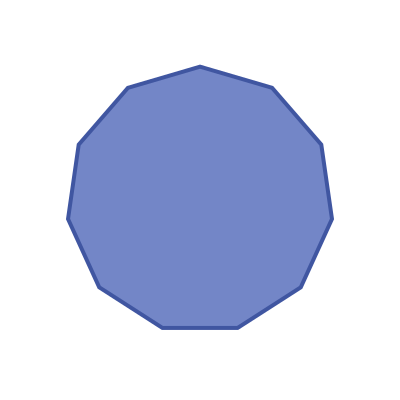
An irregular hendecagon is a 11 sides shape where not every side and angle are equal. There are many different irregular hendecagon shapes, here is an example:
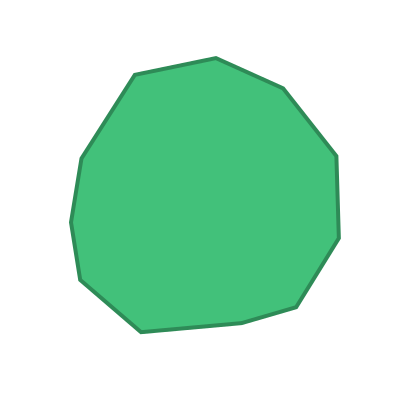
Name
The name hendecagon is a combination of the words hendeca (Greek meaning eleven) and gonia (Greek meaning corner).
Hendecagons are sometimes called 11-gons.
Interior angles
The interior angles of a hendecagon are shown here:
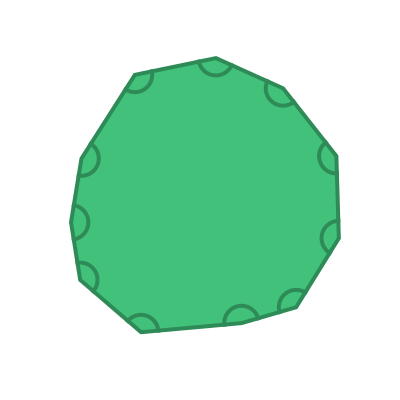
The sum of these 11 angles is given by the formula:
sum of interior angles = (n - 2) x 180
Where n is the number of sides. In this case, the number of sides n is 11, so the sum of the interior angles is:
(11 - 2) x 180 = 1620 degrees
For a regular hendecagon, all the interior angles are equal:
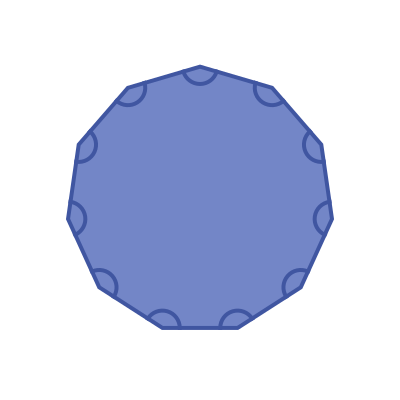
This means that the interior angle of a regular hendecagon is:
1620 / 11 = 147.27 degrees (approximately)
Exterior angles
The exterior angles of a hendecagon are shown here:
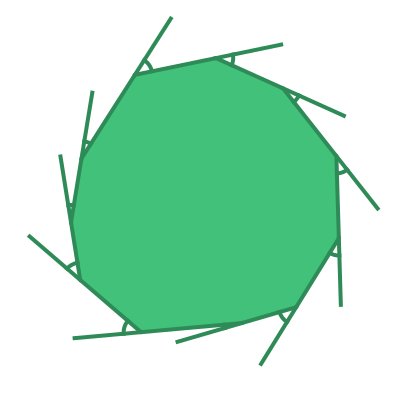
The sum of the exterior angles of any polygon is 360 degrees.
For a regular hendecagon, all the interior angles are equal:
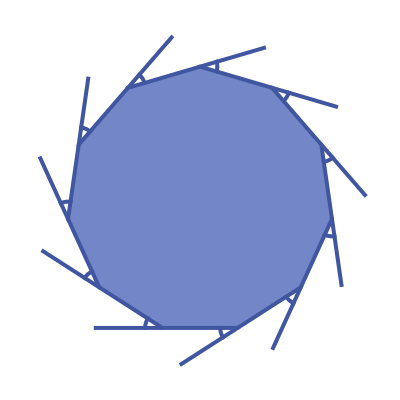
This means that the exterior angle of a regular hendecagon is:
360 / 11 = 32.73 degrees (approximately)
Symmetry of regular hendecagons
A regular hendecagon has 11 lines of symmetry. This means that it can be reflected over each of the 11 grey lines shown here:
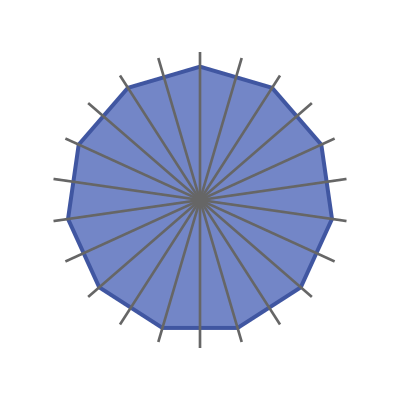
A regular hendecagon has rotational symmetry of order 11. This means that if it rotated about its centre by a 11th of a full turn, it will map onto itself:
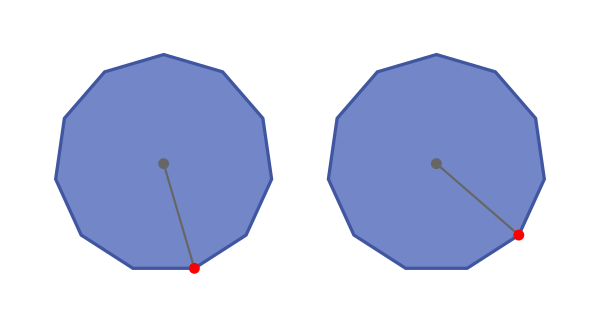
Real life examples
The Canadian 1 dollar coin is based on the regular hendecagon.
See also
- Regular polygons
- Interior and exterior angles of a polygon
- Triangles
- Quadrilaterals
- Quadrilateral family tree
- Pentagons - polygons with 5 sides
- Hexagons - polygons with 6 sides
- Heptagons - polygons with 7 sides
- Octagons - polygons with 8 sides
- Nonagons - polygons with 9 sides
- Decagons - polygons with 10 sides
- Dodecagons - polygons with 12 sides
- n-gons - polygons with any number of sides
- Other types of polygon
- Star polygons

Join the GraphicMaths Newletter
Sign up using this form to receive an email when new content is added:
Popular tags
adder adjacency matrix alu and gate angle answers area argand diagram binary maths cartesian equation chain rule chord circle cofactor combinations complex modulus complex polygon complex power complex root cosh cosine cosine rule countable cpu cube decagon demorgans law derivative determinant diagonal directrix dodecagon eigenvalue eigenvector ellipse equilateral triangle euler eulers formula exercises exponent exponential exterior angle first principles flip-flop focus gabriels horn gradient graph hendecagon heptagon hexagon horizontal hyperbola hyperbolic function hyperbolic functions infinity integration by parts integration by substitution interior angle inverse hyperbolic function inverse matrix irrational irregular polygon isosceles trapezium isosceles triangle kite koch curve l system line integral locus maclaurin series major axis matrix matrix algebra mean minor axis n choose r nand gate newton raphson method nonagon nor gate normal normal distribution not gate octagon or gate parabola parallelogram parametric equation pentagon perimeter permutations polar coordinates polynomial power probability probability distribution product rule proof pythagoras proof quadrilateral questions radians radius rectangle regular polygon rhombus root sech segment set set-reset flip-flop sine sine rule sinh sloping lines solving equations solving triangles square square root standard curves standard deviation star polygon statistics straight line graphs surface of revolution symmetry tangent tanh transformation transformations trapezium triangle turtle graphics uncountable variance vertical volume volume of revolution xnor gate xor gate